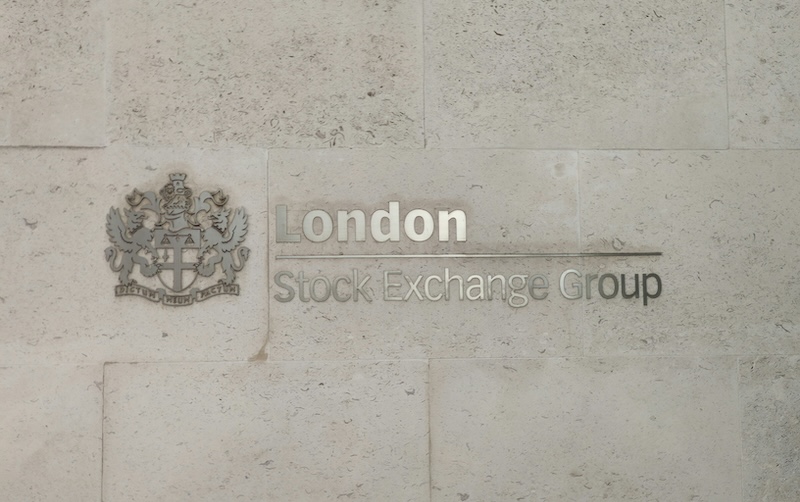Durham University modern languages graduate Alicia Boothroyd analyses the challenges Shein faces in listing on the London Stock Exchange

Shein, the Chinese-founded fast fashion behemoth, filed the initial paperwork to list on the London Stock Exchange (LSE) in early June. The potential listing, at an estimated value of £50 billion, has proved divisive. Although the listing would provide the LSE with a much-needed boost, Shein’s potential IPO is facing considerable resistance due to the company’s alleged exploitation of workers and environmental impact.
Shein was founded in 2008 in China but moved its headquarters to Singapore in 2022. Known for its rapid production of ultra-affordable clothing, the online fast fashion retailer is synonymous with overconsumption, with over 500 products being added to its website daily. Shein has received criticism for its carbon footprint (reported to be 6.3 million tons of CO2 emissions yearly) as well as alleged excessive water consumption and chemical pollution. In 2022, Shein scored 0–10% on the Fashion Transparency Index due to 83% of Shein’s suppliers violating worker health and safety conditions, according to Fashion Revolution. The fast fashion giant has also been accused by a US House Select Committee of using forced labour; Shein uses cotton from the region of Xinjiang in China, where the Chinese government are reportedly forcing the Muslim minority Uyghur population to work in cotton fields. Shein states in its 2023 Sustainability and Social Impact Report that the company “strictly prohibits child labor and forced labor”.
However, the report also acknowledges that from Q1 to Q3 2023, “SRS audits uncovered two cases of child labor in our supply chain”. In response to these violations, Shein “suspended orders from the contract manufacturers and undertook investigations”. The company emphasises that it “remain[s] vigilant in guarding against such violations going forward” and, according to current policies, will terminate any suppliers found to be noncompliant.
Shein tried to list on the New York Stock Exchange (NYSE) earlier this year but failed in part due to geopolitical tensions between the US and China. The IPO’s fate in London is in the hands of the UK Financial Conduct Authority (FCA). This places the regulatory body under a great deal of pressure, as it attempts to find a balance between its corporate governance considerations and ensuring the UK is appealing to businesses. Shein’s potential listing would provide a significant boost to the LSE, which has lagged behind the NYSE and Nasdaq due to Brexit uncertainty, slowing economic growth and waning investor confidence. From 2015 to 2020, the UK accounted for just 5 per cent of IPOs globally. The new Labour government is therefore under pressure to strengthen the UK’s appeal to global companies and bring in foreign investment post-Brexit.
Want to write for the Legal Cheek Journal?
Find out moreHowever, while the LSE could benefit significantly from Shein’s IPO, the listing faces several challenges. Firstly, Shein will have to overcome the LSE’s regulatory hurdles. In 2024 the UK government and the FCA introduced new listing rules which aim to create a more flexible, disclosure-based framework. For instance, the historical financial data required for listings was reduced, making the LSE a more attractive listing venue. However, the LSE maintains high due diligence standards, with increasingly strict environmental, social and governance (ESG) criteria. The FCA’s 2024 anti-greenwashing regulation also demands that companies clearly and accurately represent the sustainability of their products and services. In order to list, Shein would be required to provide full transparency in its supply chain to meet the LSE’s requirements, proving that its sourcing practices are ethical and free from human rights violations. The company would also need to meet rigorous disclosure requirements, providing detailed and accurate information about its finances, operations, and potential risks.
The allegations of forced labour within Shein’s supply chain present a serious challenge to its LSE listing. In May, Shein claimed to be investing tens of millions of dollars in “strengthening governance and compliance across our supply chain, as well as in empowering our suppliers to build more successful and responsible businesses”. The company also announced a 200-million-euro textile ‘circularity’ fund in July, targeting recycled materials technology startups in an attempt to boost the company’s ESG credentials. These efforts are clearly intended to demonstrate Shein’s commitment to responsible business practices ahead of a potential listing. Whether these measures will satisfy the FCA remains uncertain. It’s worth noting that the LSE’s ESG requirements, while strict, are not exhaustive; for instance, Boohoo, another fast-fashion brand, is listed on the LSE yet, according to The Good On You Directory, none of its supply chain is certified by crucial labour standards that help ensure worker health and safety, living wages, and other rights.
Want to write for the Legal Cheek Journal?
Find out moreThe potential IPO has also faced backlash. Amnesty International UK has described Shein’s potential London IPO as “deeply troubling”, drawing attention to the company’s “questionable labour and human rights standards”. Meanwhile, the online campaign and petition ‘Say No to Shein’ has gained considerable traction online, with public figures such as Mary Portas and Jeremy Corbyn calling on the government to block the proposed listing. The petition, which has over 40,000 signatures as of mid-August, demands that “the UK government should block the application until it has completed a thorough investigation into the company’s labour practices, environmental impact and tax arrangements” and that “if the investigation finds that Shein is violating international agreements on labour rights, making use of forced labour, or avoiding tax, the company’s IPO application must be rejected”.
The IPO also faces a legal challenge from the UK-based human rights group Stop Uyghur Genocide. Represented by leading human rights firm Leigh Day, the group wants to block the listing due to the concerns about labour practices in Shein’s supply chains. The human rights group argues that the listing should be denied, as the UK is a signatory to the International Labour Organization convention, which sets out minimum standards for worker engagement. Allowing Shein’s listing, given the concerns about its labour practices, would, it claims, undermine the UK’s commitment to upholding this convention.
Will ethical standards prevail over the pressure to bolster London’s struggling IPO market? The result of Shein’s bid to list on the LSE will shed light on the real significance of ESG considerations in the UK. Even if Shein makes substantial improvements to its image and supply chains to secure FCA approval, critics may view these efforts as an extreme case of greenwashing. Although Shein would hardly be the first FTSE 100 company to present ESG challenges, it remains to be seen whether investors will have an appetite for a company fraught with so many legal and ethical issues. Moreover, if the listing does succeed in boosting the LSE, will it come at the expense of its reputation?
Both Shein and the LSE have declined to comment on the planned float and the fashion retailer maintains, “We are committed to operating responsibly across every area of our business and hold ourselves to leading international standards.”
Alicia Boothroyd is a modern languages graduate from Durham University and incoming PGDL student at BPP.


